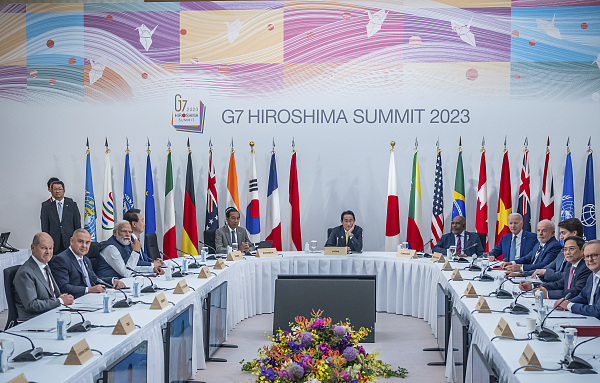G7 Summit Focuses on China's Economic Coercion, Strategy Shifted to "De-risking" from "Decoupling"
In May 2023, the leaders of G7 member states, including the U.S., Japan, and the European Union, convened in Hiroshima, Japan, for their annual summit, where they endorsed a unified strategy of "de-risking" rather than "decoupling" from China, aiming to reduce critical supply chain dependencies while managing economic ties.
CHINA,ECONOMY
Global N Press
5/22/20231 min read


In May 2023, the leaders of G7 member states, including the U.S., Japan, and the European Union, convened in Hiroshima, Japan, for their annual summit, where they endorsed a unified strategy of "de-risking" rather than "decoupling" from China, aiming to reduce critical supply chain dependencies while managing economic ties.
At the Group of Seven (G7) Summit held in Hiroshima, leaders issued a joint communique that explicitly voiced concerns over China's acts of "economic coercion." The communique adopted the term "de-risking" rather than "decoupling" to define its economic strategy toward China. This marked a new, more strategic unified stance among Western nations regarding their economic engagement with China. The core of the strategy is to reduce over-reliance on China in critical supply chains (such as minerals and semiconductors) while still maintaining trade ties.
Though the terminology softened, "de-risking" was interpreted by international analysts as a firm commitment to adjusting economic relations with China. From a conservative perspective, this strategy signaled the West's recognition of the long-term threat posed by excessive dependence on authoritarian states to national security. It prompted G7 and its allies to accelerate efforts in supply chain diversification, critical technology export controls, and the establishment of "friend-shoring" networks, further politicizing the global business environment and posing a long-term challenge to China's future high-tech development and export trade.




